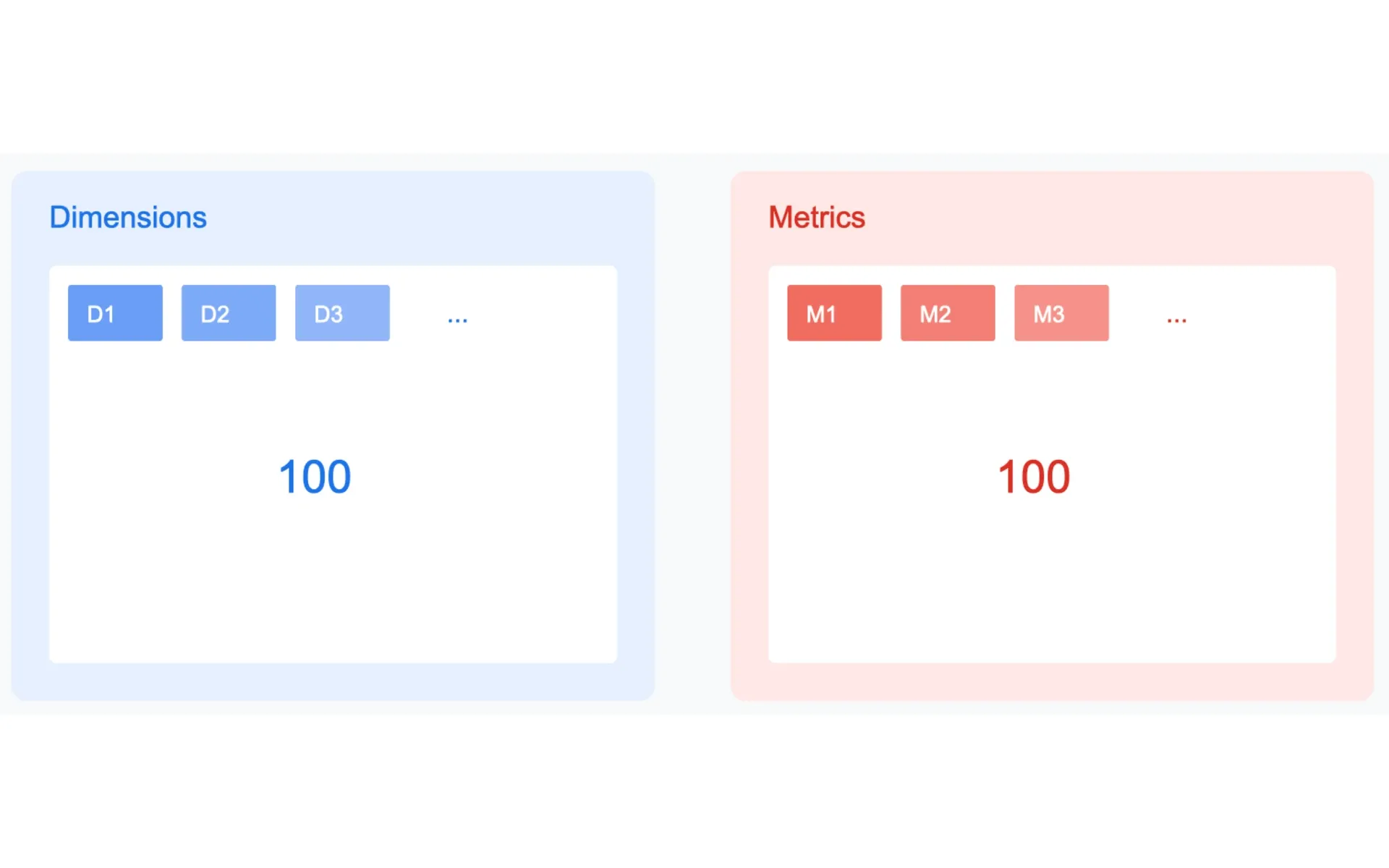Looker Studio expands data visualization capabilities with enhanced field limits
Latest update allows up to 100 dimensions and metrics in Looker-connected table charts, improving data analysis capabilities.

Google's Looker Studio has significantly expanded its capabilities for handling complex datasets. According to the January 9, 2025 release notes, the platform now supports up to 100 dimensions and 100 metrics in table charts connected to Looker data sources, marking a substantial increase in analytical capacity.
The expansion of field count limits addresses a longstanding constraint in data visualization for enterprise users. Prior to this update, analysts working with large datasets faced restrictions on the number of dimensions and metrics they could simultaneously analyze in table visualizations.
Security enhancements accompanied the technical improvements. The platform introduced a new safety feature that displays redirect notices when users interact with external links, strengthening protection against potential security risks in embedded content.
These developments follow substantial changes to Looker Studio's infrastructure requirements. According to the platform's documentation, organizations must meet specific version prerequisites for implementation. Looker instances on Google Cloud core must run version 23.6 or later, while original Looker instances hosted on AWS or Azure require version 23.4 at minimum.
The platform maintains strict technical parameters for implementation. Looker-hosted instances must be configured with either public IP addresses or private IP access through private services access. Customer-hosted Looker instances remain incompatible with the Looker Studio connector.
Analysis of the platform's limitations reveals several operational constraints. The system imposes a 5-minute query timeout for data retrieval operations. Users executing queries from Looker data sources face restrictions under the download_with_limit permission, capping row retrieval at 5,000 rows per query.
Integration capabilities show mixed support for core features. The platform restricts certain functionalities when working with Looker data sources. According to the technical documentation, scheduling email deliveries and downloading reports remain disabled for reports utilizing Looker data source connections. While these options appear in the interface, the delivered and downloaded reports will not contain data.
Performance considerations emerge with scale. Large Looker models, particularly those exceeding 100 Explores, may encounter significant delays or timeouts during data source creation processes. The platform also disables calculated fields for Looker data sources, requiring alternative approaches for complex calculations.
The update reflects broader changes in enterprise data visualization requirements. Organizations increasingly demand capabilities to analyze larger, more complex datasets while maintaining performance and security standards. The field limit expansion particularly benefits sectors dealing with multidimensional data analysis, such as finance, healthcare, and retail analytics.
Implementation requires careful attention to technical prerequisites. Organizations must verify their Looker instance compatibility and network configuration. The platform's documentation emphasizes the importance of proper API Host URL configuration and enablement of the Looker Studio BI connector in the Looker instance's Platform section of the Admin panel.
Troubleshooting protocols have been established for common integration challenges. The documentation outlines resolution paths for various issues, including HTTP 400 errors, connection failures, and data fetching problems. Support channels vary based on subscription tier, with Looker Studio Pro customers receiving access to Cloud Customer Care while free version users are directed to the Looker Studio Help Community.
The platform's development continues alongside broader changes in Google's cloud infrastructure. These updates arrive as part of Google's ongoing refinement of its business intelligence tools, focusing on enterprise-scale data analysis and visualization capabilities.
In cases of technical difficulties, the platform provides structured support pathways. Pro customers experiencing issues beyond connector functionality can contact Cloud Customer Care directly. Free version users maintain access to community support through the Looker Studio Help Community for troubleshooting and implementation guidance.

